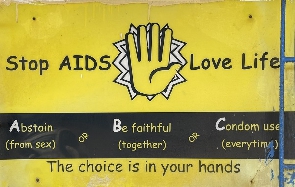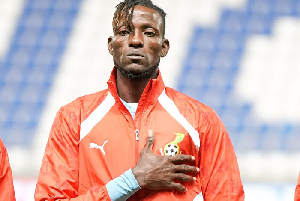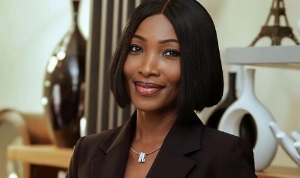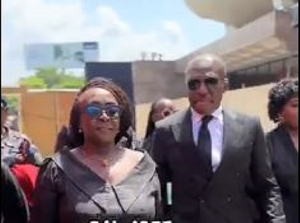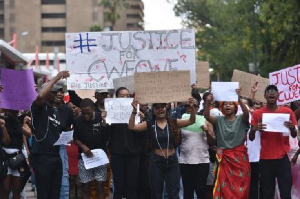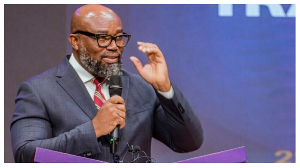The world first recognised “World AIDS Day” on December 1, 1988, and stood together on the day to show strength and solidarity against HIV/AIDS stigma in the fight against it. Since that time, the day has become an international day dedicated to raising awareness of the AIDS pandemic, as well as mourning those who have succumbed to the deadly disease.
In the late 1990s when HIV/AIDS was spreading fast across the world like the “Word of God”, swift actions needed to be taken to stem its continuous spread.
In Ghana, a national social campaign program – “Stop AIDS Love Life” was conveniently birthed to ameliorate the crisis.
The institutions and partnerships that conceived the campaign idea and came together to develop it were Lintas Ghana Limited (an advertising company), the Ministry of Health & Ministry of Information, the Ghana AIDS Commission, Ghana Social Marketing Foundation (GSMF), and Center for Communication Programs (CCP) at the Johns Hopkins University’s Johns Hopkins Bloomberg School of Public Health in Baltimore, Maryland, United States.
The CCP’s Population Communication Services (PCS) project (established in 1982 and expired in 2003) provided technical assistance, with funding from the United States Agency for International Development (USAID).
The “Stop AIDS Love Life” was launched in Ghana in February 2000 by the then First Lady of Ghana, Nana Konadu Agyemang-Rawlings. The campaign aimed to foster compassion toward those with HIV/AIDS in Ghana and also to facilitate efforts to prevent it.
Shortly after its launch, a wide array of materials, which included serial radio drama and television/radio spots were developed and aired throughout the country to drive home the campaign’s messages.
These materials focused on 3 basic issues viz. positive behavior modeling for the ABCs of prevention – Abstinence, Being faithful, and condom use; the need to increase personal perception of HIV risk; and testimonies from Ghanaians living with HIV/AIDS.
The campaign’s award-winning radio drama/talk show, “Speak Easy” was broadcast for about 1 year on Accra-based Joy 99.7 FM with each episode followed by a live in-studio discussion. The panel of studio guests was made up of youngsters who shared their thoughts on the issues that had been highlighted in the radio drama’s episode.
The success of “Speak Easy” led to the creation of the popular Ghanaian youth television series, “Things We Do for Love” – the prequel to “YOLO” (You Only Live Once).
Music as a tool for driving social causes:
Music is an effective vehicle for supporting all sorts of causes and awareness-raising campaigns in society. So, when the Ghana Social Marketing Foundation (GSMF), the government-supported body spearheading the campaign with sponsorship from the John Hopkins Foundation (USA), decided to use the medium of music to educate and sensitise the populace about the menace of AIDS, it was deemed an excellent move. Music then came in handy.
The campaign’s song, delivered in different languages chiefly local Ghanaian languages, was made by battalions of Ghanaian musicians and music producers who ‘volunteered’ their time and talent to work on the project. It presents a vibrant mix of musical styles including rap, reggae/dancehall, highlife, and gospel.
Unprotected sex being the major mode of transmission, the theme of the song was centered on advising the masses on the use of protection (condom use) during casual sex, coupled with being faithful or simply remaining sexually abstinent.
The Ghanaian musicians who featured on the song were the crème de la crème of the music industry at the time. And they were Tic Tac, Chicago, Cy Lover (aka “The Funky African”), Cecil Pesewa (of Native Funk Lords – NFL), Friction (the founder of “VIP” music group), and Reggie Rockstone (the originator of Ghana’s HipLife music) representing Hiplife/Rap.
Shasha Marley, Black Prophet, and Ras Kobby stood in strongly for Reggae/Dancehall. Others were Gyedu Blay Ambolley, Felix Owusu, and Dasebre Dwamena who did it for Highlife music.
The gospel wing was not left out as Stella Dugan (now Stella Aba Seal), Diana Akiwumi (currently called Diana Hopeson), and the acapella music group The Shepherds ably represented the gospel fraternity.
The chorus/refrain was sung by Eddie Guinan aka EQ – a British singer who used to reside in Ghana and did radio jingles for defunct Accra-based radio station: Vibe 91.9 FM (which later became Live 91. FM).
The late DJ Rab’s vocals fleetingly featured in the intro, followed by strains of scratches from his Hiphop turntable. With regards to sound engineering and all studio works, Michael Horthsmith aka “Mike Coalhouse” recorded, arranged, mixed, and produced this great musical masterpiece.
Filmed and directed by the legendary Abraham Ohene-Djan at his Sifex Studios (now OM Studios), the music video to the song starred each of the featured artists as they took turns to do their parts. The only person who could not make it to the video shoot at the time was Daasebre Gyamenah (now deceased).
With television/radio spots subsidised by the Ministry of Communications, the “Stop AIDS Love Life” music video, as well as the song, were on constant rotation on television and radio throughout the campaign’s phase in Ghana.
The music video also aired intermittently on South African pay TV network, M-Net (available on DStv). It cannot be gainsaid that the "Stop AIDS Love Life" song well encapsulates the campaign's message.
Opinions of Sunday, 3 December 2023
Columnist: Eugene Selorm Owusu

